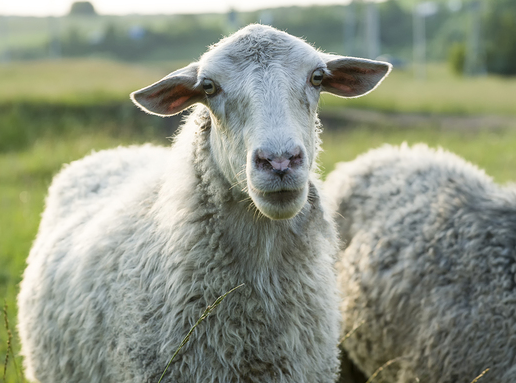Ask Kaviraj -Issue 8 – Homeopathy for Sheep, and More
|
Kaviraj is our resident expert on using homeopathy for plants, soils and pests. From Hippy to Homeopath: the Story of Vaikunthanath das Kaviraj. |
Contents
- Falling apples
- Homeopathic fertiliser
- Gall wasps
- Tulip-breaking virus
- Breaking dormancy
- Vege-eating rabbits
- Silicea as a booster
- Dieback
- Sheep fly-strike, lice and pink-eye
- Shoot and fruit borer
Questions and Answers
Q1. Falling Apples, Homeopathic Fertiliser and Gall Wasps: Hi Kaviraj, I need some advice about my poor apple tree! It gets full of blooms and makes little apples but then drops them all and they are all dimply and have black spots on them. Would silica help it if I sprayed it on late next winter or very early spring? Thank-you, L.
Hi Lita, Those apple trees need a dose of Silicea on the blooms, as soon as they are starting to open. Plus a dose of Phosphorus about 1 month later. For black spot, water with Sulphur now. Kaviraj.
Also, I have today bought the recommended agrohomeopathy remedies for my poor apple tree but I figure it’s too late to help it this year…
Well, my first attempt with homoeopathy for plants was in the ripening period and it worked very fast.
You know, I don’t think it is black spot. Or not only black spot; the apples dimple and get worms and get to about small fist size and drop off the tree. Just short of ripening! I cut one open and ate some and it was tart but heading towards sweetness. Poor tree – it’s trying so hard! And there would have been so many apples to enjoy this year!
So I see that it might be a form of rust. Belladonna could then do the trick very nicely.
Can you get homeopathic fertilizers?
No, but you can use remedies such as Ferrum phosphoricum or Kali phosphoricum to make fertiliser uptake optimal (especially if you have given phosphorus or potassium fertiliser before fruiting, as they inhibit each other).
I am going to spray the garden with neem oil but I don’t know that that will fix or help the trees (apple, lemon, avocado, kafir lime) and the flowers, much. Hmmm…
If you do that, you kill all the beneficial insects too – that is the horse behind the cart. You chase the bugs and neglect the plants.
Oh, just remembered, what helps to clear/keep gore wasp off my little kafir lime tree once I’ve cut it back severely? And is severe pruning best done in autumn? I don’t want the lemon tree or other trees to get infected.
Coccinella is the remedy for that. If that does not do it, use Thuja occidentalis.
Thanks for all your help.
Q2. Tulip Breaking Virus and Breaking Dormancy: Hi, thanks for your wisdom so far. I have had increasing trouble with tulip breaking virus in my garlic crop. It seems to get worse every year. Cold seed treatment seems to suppress it, but, it still accumulates it seems. My soils are sandy loams, organic matter heavy, and stratified with intensive vermiculture as my contribution to fertility. Yet, the virus marches on! Perhaps I need to control the aphids that spread this virus more? Also, any tips on breaking dormancy/’rest’ periods for vegetative propagations? Faithfully, WN.
Hi Wade, this sounds like a case for the carrot. Grow carrots between the tulips as they are the companion to the bulbs of any type. If you suspect aphids, give the tulips a dose of Coccinella after the dormancy period. To break the dormancy period, remove the plant from the soil before the dormancy period and put them in pots in the greenhouse or under a cold frame. The cold frame can be made even in temperature by placing water bottles against its back wall to warm up in the sun and releasing that warmth during cold nights. I hope this helps.
Q3. Vege-eating Rabbits: Hi Kaviraj, Is there something for bunnies? They eat all the veggies in the backyard. Angie.
Angie, wild bunnies? If so, catch one alive, kill it and turn to charcoal in a cast iron pot over a good but slow-burning fire. Then dissolve the charcoal in water and spray around your veggies. If tame, a simple cage that can be moved from place to place over the lawn is enough.
Homeopathy Plus Comment
It seems that a ‘bit of the hair of the dog that bit you’ may often be useful. I remember years ago when faced with a cockroach problem that someone told me to catch some of the roaches, blend them with some water in a blender and spray the …liquid around the infested area – they swore that it worked. I didn’t try it as I could never bring myself to catch the roaches or do the blending! 🙂 Fran Sheffield.
Q5. Dieback: Hello, I’ve just stumbled upon your site and am very glad to see the work you’ve been doing. Something that has been on my mind for a couple of years is the potential of homeopathy to treat Dieback. This is a horrific fungus (phytophthora cinnamomi) that is killing vast tracts of Australia, and Western Australian, native bushland. If there were an effective homeopathic cure then we all need to know what it is! Thanks, S.
Hi Saul, in my book I describe the remedy Silicea 6X or 6C as the remedy to use in dieback. When I lived in Western Australia, I did several experiments with this remedy as well as with Carbo vegetabilis. Both work, but I found Silicea to be the best.
Q6. Sheep Fly-strike and Lice: Hello Kaviraj. My sheep have had fly strike as well as lice. Is there any homeopathic remedy for these conditions? If so, how do I adminsiter it to them? — BB.
Hi Bruce, Ledum palustre herbal tincture can be used against fly strike in sheep. It can be administered like a wash. From what I understand, sheep are sent through a water trough that has the Ledum dissolved in it. A bottle of 50ml tincture into 300 litres should do the trick. Send the sheep through it and lice and flies will leave. They do not like the smell of Ledum and will jump off or fly away. If pink eye is ever a problem, there is a remedy that works well for it too. During the influenza epidemic in this country (UK) Arsenicum iodatum was used as a specific for ‘pink-eye’ in the form it took among horses, but it was not found useful among human patients. It is also indicated for pink-eye in cattle and sheep.
Note about KavirajVaikunthanath Kaviraj passed away in March 2013 but left an enormous legacy of how to safely manage plant pests and diseases with homeopathy. |







